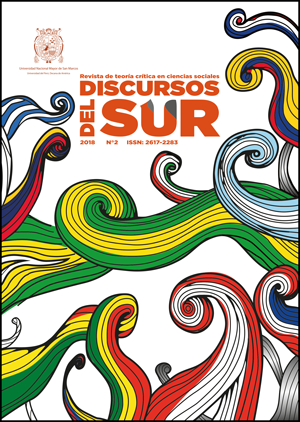Marxist theories of the state and their application to the Venezuela case
DOI:
https://doi.org/10.15381/dds.v0i2.15476Keywords:
Ralph Miliband, Louis Althusser, Nicos Poulantzas, Hugo Chávez, Fedécamaras, instrumentalization, “democratic national revolution”Abstract
The implications of the Marxist theories of the State developed by Nicos Poulantzas, Louis Althusser and Ralph Miliband are useful in order to frame the basic elements related to the leftist strategy in Venezuela during the 21st Century. There exists a relationship between each of these theories and three problems that Chavism faces: i) if the bourgeoise (or sectors of it) exhibit a sense of “class consciousness”; ii) the viability of tactical alliances and strategies between the left and groups associated to the capitalist structure; iii) if socialism can be achieved by phases, by abrupt revolutionary changes, or by the continuous radicalization of the State during an extensive period of time. At the time when Poulantzas wrote his concept of State as a “field of strategic battle”, this lend itself to the politics of “strategic alliances” of the left with parties located in the right. The same concept of State is compatible with the “process of change” in Venezuela in which the autonomous movements develop a fundamental role in the transformation of the old State and the construction of new State structures.
Downloads
Published
Issue
Section
License
Copyright (c) 2018 Steve Ellner

This work is licensed under a Creative Commons Attribution-NonCommercial-ShareAlike 4.0 International License.
THE AUTHORS RETAIN THEIR RIGHTS:
(a) The authors retain their trademark and patent rights, and also on any process or procedure described in the article.
(b) The authors retain the right to share, copy, distribute, execute and publicly communicate the article published in Discursos Del Sur (in example, depositing the article in an institutional repository or publish it in a book), with recognition of its initial publication in the Discursos Del Sur.
(c) The authors retain the right to make a later publication of their work, to use the article or any part of it (for example: a compilation of their works, notes for conferences, thesis, or for a book), provided that they indicate the source of publication (authors of the work, magazine, volume, number and date).




















